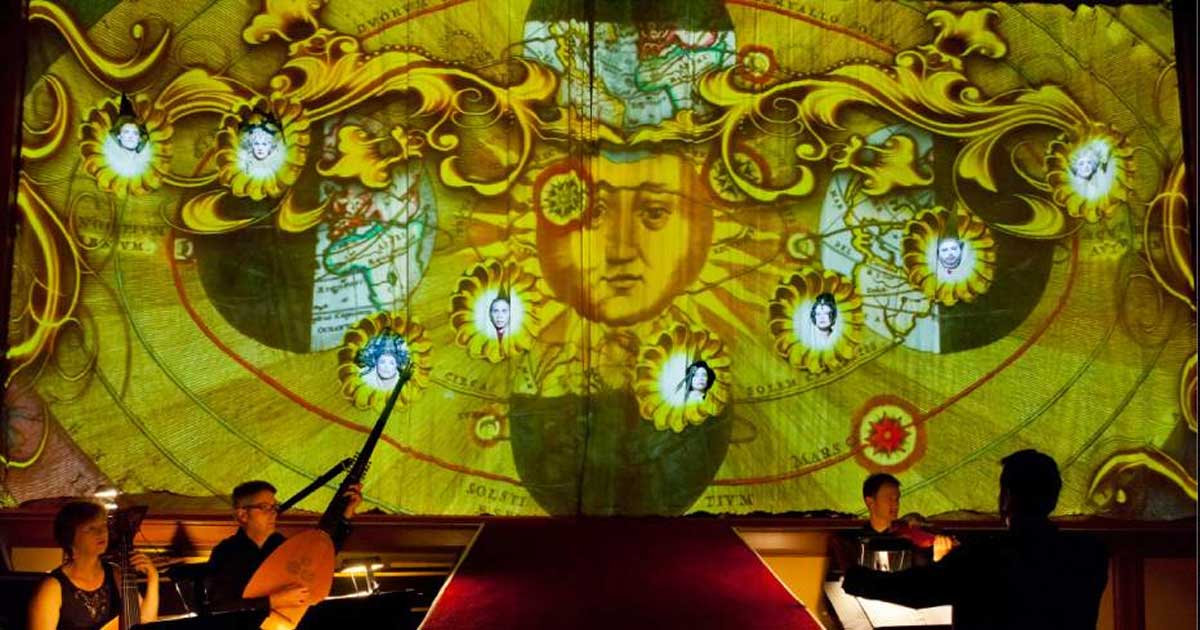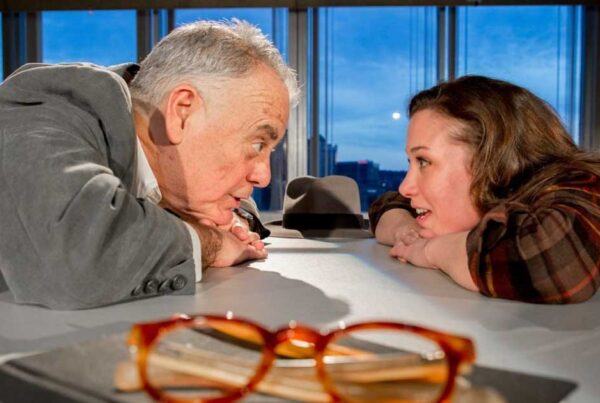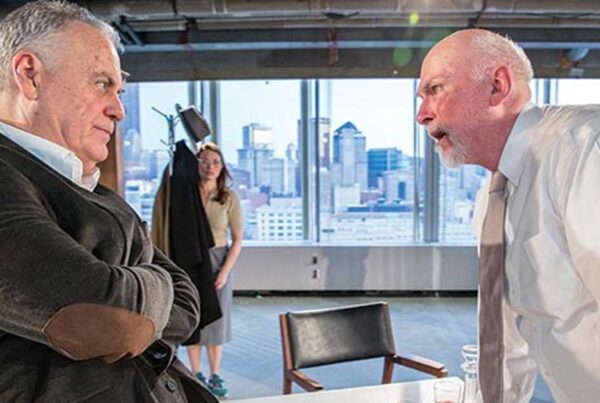
Tribune-Review – Since its beginnings in 1990, Quantum Theatre has earned and honed a reputation for taking audiences to challenging and unfamiliar locations — a chilly warehouse in a defunct brewery, a grassy hillside in Allegheny Cemetery, the Mattress Factory’s stone-walled basement and the stable yard at Hartwood Acres among them.
As it embarks on its 25th anniversary season, the company is venturing into unfamiliar territory with its creation of a world-premiere opera based on William Shakespeare’s dark romance “The Winter’s Tale.”
The production will begin Sept. 16 in a 350-seat theater on the 10th floor of the Union Trust Building, Downtown. Originally designed as a private theater where Henry Clay Frick could host artists in safety and comfort, the theater also has modern conveniences that include restrooms, air conditioning and comfortable seats.
Conceived by Quantum’s artistic director Karla Boos, the new work quickly became a collaborative effort.
For the past year, Boos and Quantum’s music director, Andres Cladera, have worked with members of the musical ensemble Chatham Baroque and the contemporary dance company Attack Theatre to create this opera that joins the music of baroque composers such as Antonio Vivaldi, George Frideric Handel and Claudio Monteverdi to the English dialogue and drama of Shakespeare’s play.
“We are three companies so serious about our art form that we are striving to tell this story within the mode,” Boos says. “We are contemporary artists in this moment of reflection. What’s cool is that we reach out to each other.”
After seeing the Metropolitan Opera’s 2011 world premiere of “The Enchanted Island” — which paired arias from a variety of baroque operas with the text of Shakespeare’s “The Tempest” and “A Midsummer Night’s Dream” — Boos decided to create a similar opera that employed the characters and plot from “The Winter’s Tale.”
“Karla is very brave and forward-thinking,” says Patricia Halverson, the viola da gamba player for the three-person, self-governing Chatham Baroque. “This seemed challenging, very ambitious.”
One of Shakespeare’s later, darker plays, “The Winter’s Tale” begins with a moment of jealous, unreasoning rage. King Leontes impulsively accuses his wife, Hermione, of an infidelity with his best friend, Polixenes. He calls for Polixenes’ execution and sends his wife to prison.
That baseless accusation begins a three-decade spiral of loss, death and regret that destroys his family before love, forgiveness and dancing shepherds and shepherdesses bring about a magical, upbeat ending.
The play’s high drama and emotion would seem to be a natural to adapt into an opera. What took effort was finding the proper balance of music and drama.
“Operas are not dramatic pieces,” Halverson says, explaining that music takes priority over words and characters.
In this theatrical adaptation, however, the music serves to enhance the text.
“Our recitatives had to pay attention to punctuation and words,” she says.
Nevertheless, some of Shakespeare’s text has been eliminated to fit into the opera format. “We cut the text, because (otherwise) it would be six hours long,” Halverson says.
Also signed on for this production are Attack Theatre artistic directors Michele de la Reza and Peter Kope, who are creating the choreography.
As you might expect, this contemporary dance company will be bringing its dance vocabulary to the work. The plan is not to reproduce baroque dance but be influenced by it, de la Reza says.
“The challenge with the movement (in ‘The Winter’s Tale’) is that it serves a lot of different masters,” de la Reza says.
In addition to helping get characters from one place on stage to another, dance will sometimes serve in the place of text passages to express what a character is experiencing.
She and Kope are working closely with video artist Joseph Seamans on scenes that will, as de la Reza explains, “take a person from 2-D into the 3-D world.”
“With this piece, what I really care about is that the theatrical aspect drives the music,” says Cladera, who also is one of the founding directors of the Microscopic Opera Company. “I think that happens in this (production). We are coming out with a piece of music and theater that is really compelling.”




